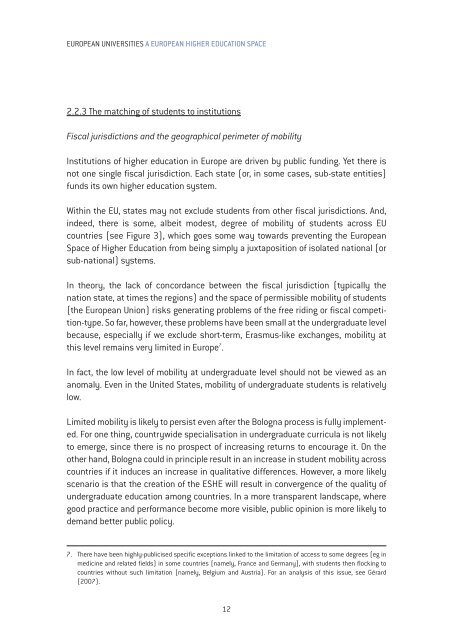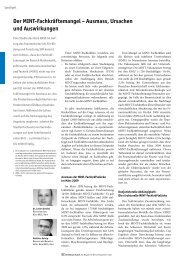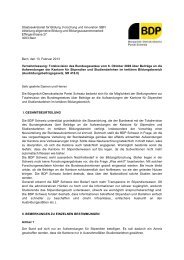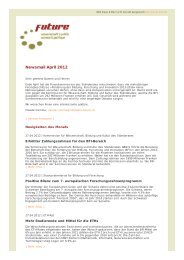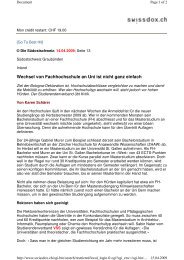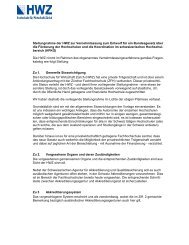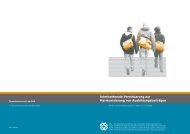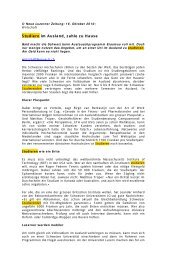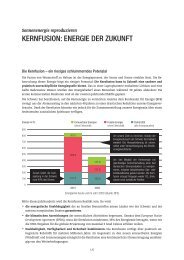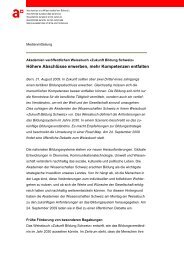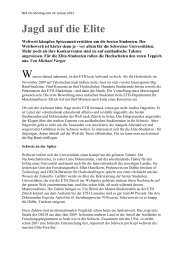Higher aspirations: an agenda for reforming European universities
Higher aspirations: an agenda for reforming European universities
Higher aspirations: an agenda for reforming European universities
Create successful ePaper yourself
Turn your PDF publications into a flip-book with our unique Google optimized e-Paper software.
EUROPEAN UNIVERSITIES A EUROPEAN HIGHER EDUCATION SPACE<br />
2.2.3 The matching of students to institutions<br />
Fiscal jurisdictions <strong>an</strong>d the geographical perimeter of mobility<br />
Institutions of higher education in Europe are driven by public funding. Yet there is<br />
not one single fiscal jurisdiction. Each state (or, in some cases, sub-state entities)<br />
funds its own higher education system.<br />
Within the EU, states may not exclude students from other fiscal jurisdictions. And,<br />
indeed, there is some, albeit modest, degree of mobility of students across EU<br />
countries (see Figure 3), which goes some way towards preventing the Europe<strong>an</strong><br />
Space of <strong>Higher</strong> Education from being simply a juxtaposition of isolated national (or<br />
sub-national) systems.<br />
In theory, the lack of concord<strong>an</strong>ce between the fiscal jurisdiction (typically the<br />
nation state, at times the regions) <strong>an</strong>d the space of permissible mobility of students<br />
(the Europe<strong>an</strong> Union) risks generating problems of the free riding or fiscal competition-type.<br />
So far, however, these problems have been small at the undergraduate level<br />
because, especially if we exclude short-term, Erasmus-like exch<strong>an</strong>ges, mobility at<br />
this level remains very limited in Europe 7 .<br />
In fact, the low level of mobility at undergraduate level should not be viewed as <strong>an</strong><br />
<strong>an</strong>omaly. Even in the United States, mobility of undergraduate students is relatively<br />
low.<br />
Limited mobility is likely to persist even after the Bologna process is fully implemented.<br />
For one thing, countrywide specialisation in undergraduate curricula is not likely<br />
to emerge, since there is no prospect of increasing returns to encourage it. On the<br />
other h<strong>an</strong>d, Bologna could in principle result in <strong>an</strong> increase in student mobility across<br />
countries if it induces <strong>an</strong> increase in qualitative differences. However, a more likely<br />
scenario is that the creation of the ESHE will result in convergence of the quality of<br />
undergraduate education among countries. In a more tr<strong>an</strong>sparent l<strong>an</strong>dscape, where<br />
good practice <strong>an</strong>d per<strong>for</strong>m<strong>an</strong>ce become more visible, public opinion is more likely to<br />
dem<strong>an</strong>d better public policy.<br />
7. There have been highly-publicised specific exceptions linked to the limitation of access to some degrees (eg in<br />
medicine <strong>an</strong>d related fields) in some countries (namely, Fr<strong>an</strong>ce <strong>an</strong>d Germ<strong>an</strong>y), with students then flocking to<br />
countries without such limitation (namely, Belgium <strong>an</strong>d Austria). For <strong>an</strong> <strong>an</strong>alysis of this issue, see Gérard<br />
(2007).<br />
12


